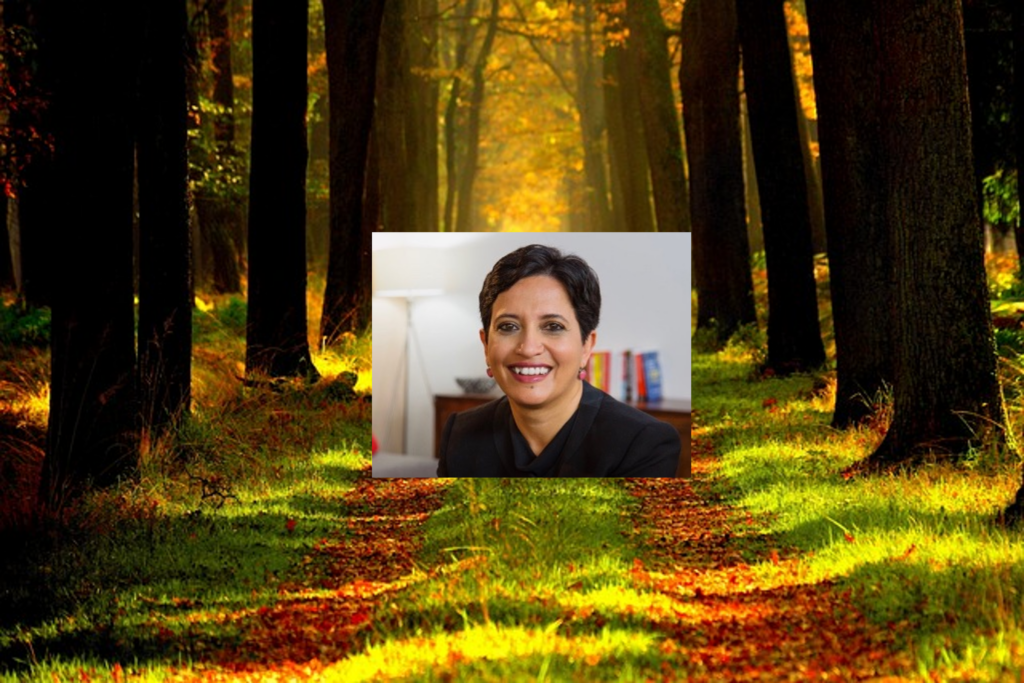Entrepreneur Journeys
The Startup Velocity Question: What Hinders Acceleration in VC Funded Companies?

I have been running 1Mby1M since 2010. I find myself saying to entrepreneurs ad nauseam that VCs want to invest in startups that can go from zero to $100 million in revenue in 5 to 7 years.
Startups that do not have what it takes to achieve velocity should not be venture funded.
Experienced VCs, over time, have developed heuristics to gauge what constitutes a high growth venture investment thesis.
>>>1Mby1M Udemy Courses with Sramana Mitra: Bootstrapping

Over the course of two years, we have released over 70 courses on Udemy with the aim to democratize entrepreneurship education at scale globally. This series of posts aims to help you find the one you need easily and provide you with discount coupons.
>>>Bootstrapping a Virtual Company to Scale: Taso Du Val, CEO of Toptal (Part 1)
If you haven’t already, please study our free Bootstrapping course and the Investor Introductions page.
There’s a lot of controversy around whether virtual teams scale. Taso Du Val has scaled a sizeable business using a virtual team. Read on to learn more.
Sramana Mitra: Let’s start at the very beginning of your personal entrepreneurial journey. Where are you from? Where were you born and raised? What kind of background?
Taso Du Val: I grew up in Massachusetts and Westchester, New York. I’m a high school dropout who started Toptal at the age of 25.
Sramana Mitra: What was going on in your life around 25 that led you to start Toptal? >>>
Featured Videos
Can 1M/1M Help Me Raise Money?
How Does 1M/1M Democratize Entrepreneurship Education?
How Does 1M/1M Democratize Management Consulting?
When Is The Right Time To Join 1M/1M?
Can 1M/1M Help Me With Business Development?
Can 1M/1M Help Me With Market Sizing?
Can 1M/1M Help Me Validate My Product?
Will I Have Private 1-on-1 Sessions In 1M/1M?
How Does 1M/1M Help Entrepreneurs Connect With Silicon Valley?
Mentoring or Consulting?
Why Does 1M/1M Charge $1000 a Year?
Why Does 1M/1M Partner With Local Organizations?
Why Don\’t Mentoring Networks Work?
Why Is It Important To Study With 1M/1M Now?
Dan Stewart Story
Vikrant Mathur Story
Building an AI-Driven Sales Optimization Company: Vincent Yang, CEO of EverString (Part 1)
I did a company in the sales lead generation and qualification space using Artificial Intelligence back in 1998. We were very, very early. It’s exciting to see the movements in the space, and how EverString is succeeding almost 20 years later.
Sramana Mitra: Let’s start with the very beginning of your story. Where are you from? Where were your born, raised, and in what kind of circumstances?
Vincent Yang: I was originally born and raised in China. I was born in Shanghai. I went to college in China. When I was studying in high school, I was very interested in mathematics. I was one of the few students in high school who didn’t go to any class for help in mathematics and computer science. Obviously, right after high school, I selected mathematics as my undergraduate. I went to one of the top universities in China and studied mathematics.
Sramana Mitra: What year did you finish university? >>>
Bootstrapping to $300 Million: Faisal Husain, CEO of Synechron (Part 1)
If you haven’t already, please study our free Bootstrapping course and the Investor Introductions page.
Faisal is one of those rare entrepreneurs who have managed to grow his business with no outside financing to significant scale. We discuss his journey here.
Sramana Mitra: Let’s go to the very beginning of your story. Where are you from? Where were you born, raised, and in what kind of background?
Faisal Husain: My roots are from India, but I was actually born in West Africa in Nigeria. My parents had moved from India to Nigeria in search of jobs and they were in the education field. My father was a principal and my mother was a math teacher. While they were doing their jobs and building their careers in Nigeria, I was born there. I lived in Nigeria for 13 years. At that point, my parents decided to move back home to India. I was then home schooled for about three or four years, and then came to the United States. >>>
Taking On The Big Guys: Chrome River Co-Founder and COO Dave Terry (Part 1)
Chrome River is successfully taking on Concur (now SAP) in the expense reporting SaaS space. Find out how.
Sramana Mitra: Let’s go to the very beginning of your journey. Where are you from? Where were you born, raised, and in what kind of circumstances?
Dave Terry: I was born in Texas. I went to school at the University of Texas. I have a degree in Computer Science and Math. I came out of college spinning the propeller on my head. I was a program developer and moved to software programming field.
Sramana Mitra: What year was that?
Dave Terry: This was 1987. I began developing software. My first job was in programming. Fortunately, I fell into a job where I was developing software for large ERP systems for law firms. There was this company out of Dallas that was doing that. I was a software developer developing back-end, time billing, financial management, and AP automation for large law firms around the globe. >>>
Scaling an Analytics Services Business to $30 Million: Axtria CEO Jaswinder Chadha (Part 1)
If you haven’t already, please study our Bootstrapping Course and Investor Introductions page.
Outsourced analytics services has been a popular category, especially in the US-India mode. Jaswinder has built not one, but two of these businesses.
Sramana Mitra: Let’s go to the very beginning of your story. Where are you from? Where were you born, raised, and in what kind of background?
Jaswinder Chadha: I grew up in Punjab, India. My father was in the army, so I was born in the military hospital. My mom was a professor at a university. I spent most of my childhood at the army base because my dad was getting posted all over the country. It was more of a stable base for us to get our education. I graduated from IIT – Delhi and came to the US in 1990 for graduate studies. Then, I ended up going for Ph.D. as well. I went to Texas A&M. That has been my foundation in education before I jumped into the business world.
Sramana Mitra: What did you do right after your Ph.D.? What was the next step? >>>
Scaling a Technology Company Against Major Competitors: Solix CEO Sai Gundavelli (Part 1)
If you haven’t already, please study our Bootstrapping Course and Investor Introductions page.
Sai has had to compete with competitors who were eventually acquired by HP, IBM, and their likes. How does a small company compete? Find out more.
Sramana Mitra: Let’s start with the very beginning of your story. Where are you from? Where were you born, raised, and in what kind of circumstances?
Sai Gundavelli: I am from India. I have done my Bachelor’s from India. I did my Master’s from the University of Oklahoma in Mechanical Engineering. It was during the very early stages of the computer revolution. I was fortunate to get an offer from Cisco when it was less than a $100 million company and when you could meet John Chambers in the cafeteria. I worked at Cisco for five years and was part of multiple projects. It was a fairly bumpy ride but I learned tremendously. >>>
Bootstrapping to $45 Million from Chicago: RKON CEO Jeff Mullarkey (Part 1)
If you haven’t already, please study our free Bootstrapping course and the Investor Introductions page.
Jeff has built a Managed Service Provider (MSP) business that he now wants to take to $500 million or a billion dollars in revenue. Read how he did it, and what he plans to do in the future.
Sramana Mitra: Let’s begin at the very beginning of your journey. Where are you from? Where were you born, raised, and in what kind of background?
Jeff Mullarkey: I’m from the Chicago area. I grew up in a modest environment. I went to Illinois State University. I graduated with a Marketing degree with little clue of what I want. Right at this moment in time, personal computers had started to emerge. I frankly had never even used one. I stumbled into taking a job selling PCs. That’s how I got into the industry. It was a little bit by fluke. It was a very small industry at that time. This was 1986. That was how I got into IT.
Sramana Mitra: What happens next? >>>
Bootstrapping All The Way: Infinitely Virtual CEO Adam Stern (Part 1)
If you haven’t already, please study our free Bootstrapping course and the Investor Introductions page.
Adam has used some equipment financing, and plans to use more debt financing, to scale Infinitely Virtual. He has not used any venture capital or private equity, but has built a substantial company. Read on to learn how.
Sramana Mitra: Let’s start at the very beginning of your story. Where are you from? Where were you born, raised, and in what kind of circumstances?
Adam Stern: I was born in Los Angeles to parents who came to this country in their early teens. Neither of them had attended university or college. My grandfather was denied entrance into university in Hungary on account of being Jewish. I was, early on, told that I was the hope of the family to go to university and do what my grandfather and father could never do. I grew up in a middle-class household. We didn’t want for anything but we didn’t have anything extravagant either. >>>
Bootstrap First, Raise Money Later from Utah: HireVue CEO Mark Newman (Part 1)
True to our 1M/1M mantra, Mark bootstrapped HireVue to $1M in revenue before raising the first funding. Today, the company has raised a total of $92 million, and is going $30 million in revenue. Excellent case study to study!
Sramana Mitra: Let’s go to the very beginning of your story. Tell us where you’re from, where you were born and raised, and in what kind of circumstances.
Mark Newman: I was born in Northern Canada, about 400 miles north of Toronto, in a small town called Timmons. I was a mining industry brat. My dad designed and built the copper smelters. He was a chemistry and metallurgy nut whose favorite thing was taking rocks and turning them into solid bars of something. Living up there, you were able to be blissfully unaware. You live in a small little town. You had chances to go to lakes and kick through trees.
Sramana Mitra: Where did you do your college? >>>
Bootstrapping to $100 Million: Vacasa Co-Founder Cliff Johnson (Part 1)
Vacasa has bootstrapped to scale in the crowded vacation rental space. Read how!
Sramana Mitra: Let’s start with the very beginning of your journey. Where were you born, raised, and in what kind of background?
Cliff Johnson: I actually have a fairly unique background, at least for the US anyway. I was born in New Jersey. I’ve lived there until about I was 12 and then moved to a small farm town in Missouri where we had an 80-acre farm. I learned a lot of different skills out there. That was my initial upbringing. My dad is a welder pipefitter.
Sramana Mitra: Where did you go to college?
Cliff Johnson: There’s this small school in Missouri called Drury University. It’s a small school in Springfield, Missouri.
Sramana Mitra: What did you study? >>>
